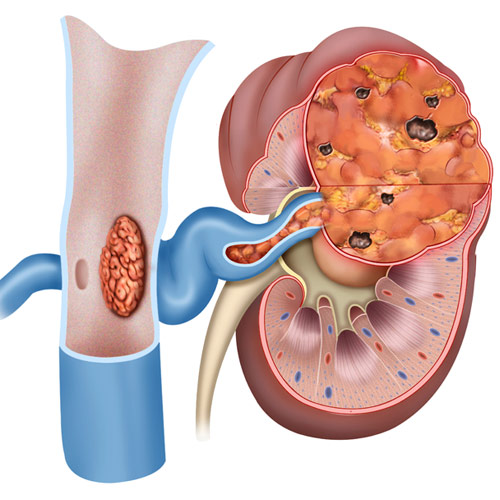The kidneys are prone to a variety of diseases because of all the essential tasks they carry out and the poisons they come into contact with. Kidney disease may be caused by environmental or medical conditions, and in certain persons, these factors can result in structural and functional issues from birth.
Most Common Kidney Diseases.
1. Diabetic Nephropathy
Long-term diabetes causes damage to the kidney capillaries in persons with diabetic nephropathy. The symptoms may not become apparent until years after the damage starts to develop. The symptoms might include;
- Accumulation of fluid
- Difficulties in sleeping
- Stomach ache,
- Weakness,
- Difficulty in concentration
2. Kidney Stones
Mineral deposits can solidify and create stones in the kidneys. If they obstruct the ureter, they may interfere with kidney function and produce excruciating discomfort.
3. Kidney Infections
Bacteria from the bladder that spread to the kidneys frequently cause kidney infections. The signs and symptoms can include fever, uncomfortable urination, and lower back pain. Blood, cloudiness, and an odd odor are just a few examples of pee changes. Females are more prone to have kidney infections than males are, and those who are pregnant are more susceptible. Antibiotic treatment for the infection frequently works successfully.
4. Renal Failure
Renal failure causes the kidneys to lose their ability to properly filter waste from the blood. If kidney failure is brought on by an injury or another event, such as overusing medicine, the illness might be treatable. If the cause is a disease, however, kidney failure often does not have a full cure.
5. Kidney Hydronephrosis
The term “water on the kidney” is hydronephrosis. Intense discomfort usually results when an obstruction prevents urine from exiting the kidney. Untreated hydronephrosis over time can put strain on a person’s kidneys and possibly cause kidney damage.
6. Interstitial Nephritis
The nephrons may become inflamed due to an infection or a drug reaction. Addressing the source of the inflammation or altering a drug regimen are the usual methods of treatment.
7. Kidney Tumor
These tumors may be benign or cancerous. Malignant cancers can be aggressive, while benign cancers do not spread or destroy tissue. Renal cell carcinoma is the most typical kind of malignant kidney cancer.
8. Nephrotic Syndrome
Protein levels in the urine rise when kidney disease impairs the organ’s ability to operate. This result causes a protein deficiency throughout the body, which causes the tissues to absorb water. Nephrotic syndrome symptoms can include;
- Swollen eyes
- Elevated levels of cholesterol
- Tiredness and appetite loss
- Weight gain
- Kidney issues may be indicated by lower back pain and variations in urine, particularly on one side.
Other kidney conditions include;
- Glomerulonephritis
- Acute nephritis
- Polycystic kidney disease
- Urinary tract infections
- Caliectasis
- Acidosis
- Uremia
- Pyelonephritis
- Kidney cysts
- Azotemia
Discover additional information about some of the most prevalent kidney illnesses.
Signs of Kidney Disease
A variety of symptoms can be brought on by kidney problems. Typical examples include:
- Sleep issues
- Fatigue
- Difficulty concentrating
- Increased or decreased urination
- Dry, itchy skin
- Blood in the urine
- Froth in the pee
- Puffiness around the eyes
- Ankle or foot swelling
- Low appetite
- Cramping muscles
Contact your physician if you experience any of these symptoms. To make a diagnosis, they could do some kidney function tests based on your symptoms.
Causes of Kidney Damages
Kidney damage may have a number of common causes, such as:
- Lithium: Lithium is a medication that doctors use to treat bipolar illness and schizophrenia. But lithium might result in nephropathy. Long-term use from a dependable source. Lithium side effects can be avoided with careful medical monitoring.
- Chemotherapy substances: Acute renal damage is the most frequent type of kidney condition in cancer patients. The severe diarrhoea and vomiting that are frequent are side effects of chemotherapy.
- Alcohol: Alcohol impairs how well the kidneys can filter blood. Additionally, alcohol dehydrates the body, which makes it more difficult for the kidneys to restore internal equilibrium, and it raises blood pressure, which can also be detrimental to the kidneys.
- Analgesics: Chronic analgesic nephritis can develop if painkillers are used often. Aspirin, acetaminophen, and nonsteroidal anti-inflammatory medications (NSAIDs) are some examples.
- IgA nephropathy: IgA nephropathy, also called Berger disease, is brought on by an accumulation of immunoglobin A (IgA) antibodies in the kidney. Although IgA is an essential component of the immune system, an accumulation can be hazardous. The condition develops gradually, sometimes taking up to 20 years. The signs include arthritis, a rash, and stomach ache. Kidney failure could occur as a result.
How to Maintain Healthy Kidneys
The heart and other sections of the body, including the kidneys, are affected by these vital organs. To keep them operating effectively, remember these tips:
Avoid excessive salt
The mineral balance in the blood can be upset by eating a lot of salty meals. The kidneys may struggle to function correctly as a result of this. Replace processed foods, which can include a lot of added salt, with healthy foods like fresh vegetables and fruits and lean cuts of meat
Exercise
Chronic renal disease is recognized to be at risk due to high blood pressure. Even just 20 minutes a day of consistent exercise can help lower blood pressure.

Stay Hydrated
One of the most crucial tasks of the kidneys is to remove toxins, which is made easier by drinking plenty of water. Find out how much water you really ought to be drinking each day.

Be Cautious when taking Medications
Nonsteroidal anti-inflammatory pills, among other over-the-counter medicines, can damage kidneys if taken frequently. It is okay to occasionally use them, but if you have a condition that necessitates managing pain, like arthritis, work with your doctor to discover alternatives.
Recognize the Dangers
There are a number of factors that can make you more likely to get kidney disease. Make certain you undergo frequent kidney function tests if you:
- Suffer from diabetes
- Are obese
- Blood pressure is high
- Have a history of renal illness in your family.
